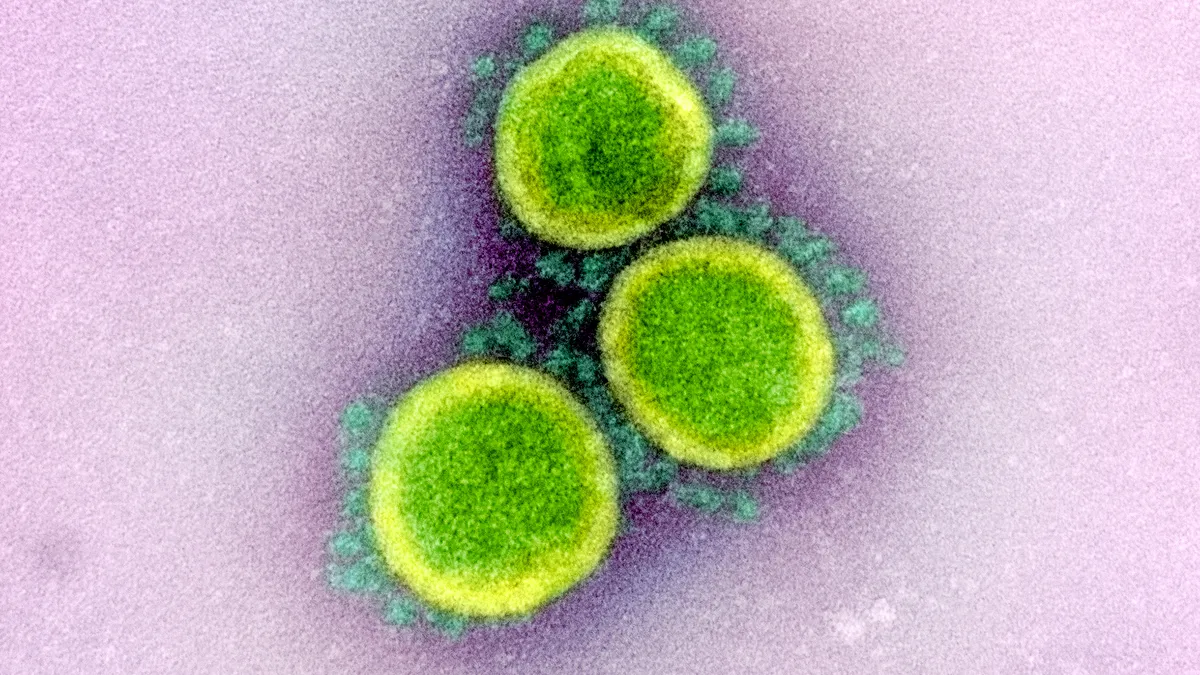Dive Brief:
- New cancer diagnoses in the U.S. remained below the pre-pandemic period over the winter despite evidence cases were missed earlier in 2020, according to an analysis of data from Quest Diagnostics.
- Writing in JAMA Network Open, researchers at Quest report diagnoses of eight cancer types were 19.1% lower from November 2020 to March 2021 than in the year before the start of the crisis in the U.S.
- The decline over the winter months was the second statistically significant drop in diagnoses of the pandemic, following the 46.4% fall in March and April 2020. Between those two drops, diagnoses fell by 9.6%, a change that fell short of statistical significance.
Dive Insight:
Concerns about the impact of COVID-19 on routine cancer screening and the willingness of patients to visit physicians after developing symptoms have existed since the early weeks of the pandemic. In August 2020, Quest published data showing U.S. cancer diagnoses almost halved in the six weeks starting March 2020, compared to the previous 13 months.
Now, Quest has updated its analysis with data on rates of cancer diagnoses between April 2020 and March 2021. The steep decline in diagnoses at the start of the pandemic suggests there should be a backlog of undiagnosed cases that would be identified as the crisis eased.
However, diagnoses fell numerically over the summer months of 2020, when COVID-19 was putting relatively little strain on the healthcare system, and dropped statistically as the winter wave ramped up in November. Diagnoses of all eight analyzed cancers — breast, colorectal, lung, pancreatic, cervical, gastric, esophageal and prostate — fell statistically from November 2020 to March 2021.
The declines seen over those months corroborate other sources. Discussing the first three months of 2021, breast imaging player Hologic said the mammography market was still below pre-COVID-19 levels. Similarly, in early May 2021 management at Exact Sciences said colonoscopies were down 10% to 20%. The suggestion that screening remained below pre-pandemic levels over the summer is also supported by other sources, including an assessment by Massachusetts General Brigham.
Quest's discovery that diagnoses stayed numerically below pre-pandemic levels across all three time periods led the researchers to conclude "many cancers may remain undiagnosed." The impact of catching cancer late will vary depending on the tumor type and the extent of the delay, but in general late diagnosis is associated with poorer health outcomes.
"Due to gaps in care throughout the pandemic, we can expect a future wave of patients presenting with cancer at more advanced stages of disease," Harvey Kaufman, senior medical director and head of Quest's Health Trends Research Program, said in a statement. "Many of these patients, unfortunately, can expect more aggressive therapy and care with less favorable outcomes."
Physicians are already seeing an increase in the number of patients with advanced cancers that, in the absence of the COVID-19 disruption, may have been detected earlier. Two-thirds of radiation oncologists polled in January and February 2021 said new patients had more advanced disease than before the pandemic. Almost three-quarters of the oncologists said patients missed screenings.












